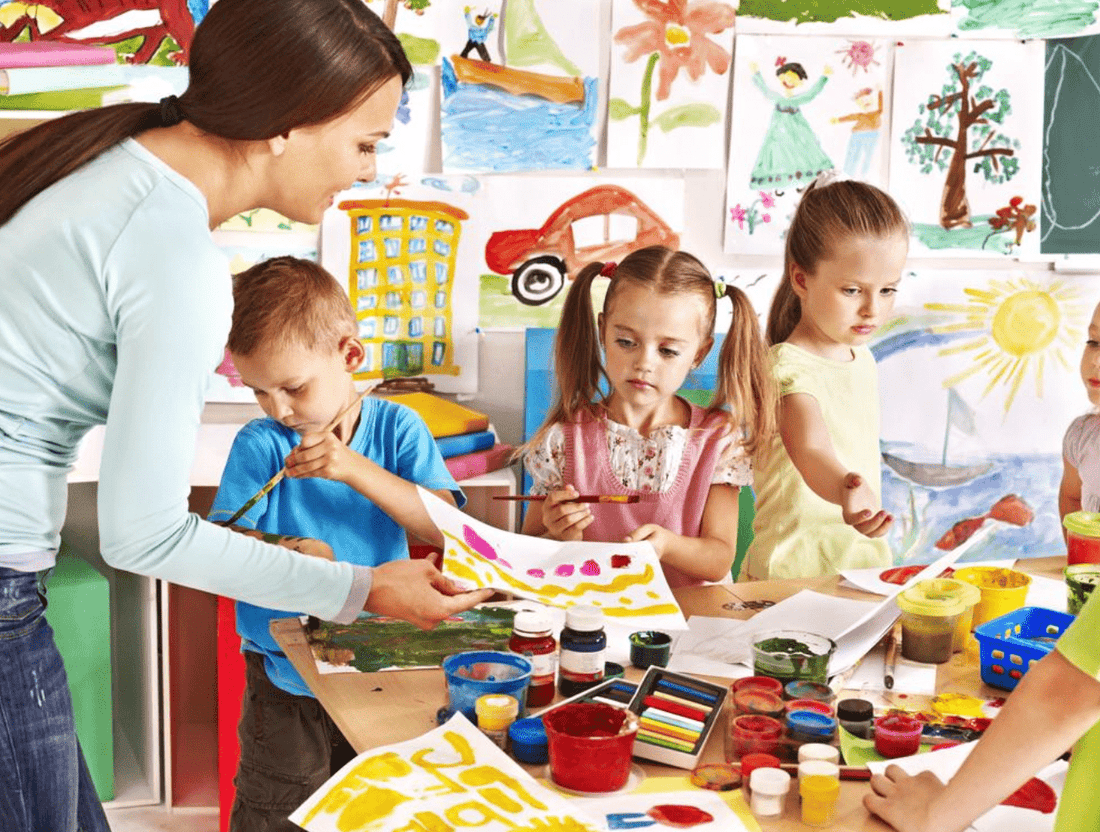
Understanding Preschool Milestones: Social and Emotional Development
Share
When your child is starting preschool it can be nerve wrecking for many different reasons. One point of worry can be around how your child might measure up to their peers.. Understanding development milestones helps you support your child's growth and provides peace of mind as they begin this exciting phase of life. It can help a parent understand what to expect, what is normal, and when to take action. First things first, there is a wide range of that is considered ‘normal’ and plenty of options for parents that want to ensure their child is hitting the mark. So, take a deep breath, and let’s dive in.
What Are Preschool Development Milestones?
Preschool development milestones refer to the key skills and behaviors most children exhibit by certain ages. While every child is unique and develops at their own pace, these milestones can help you gauge typical development and identify any areas where additional support might be needed.
Key Milestones for Preschoolers
The emotional development of kids can refer to things like sharing, cooperation, developing independence, building friendships, and expressing emotions in a healthy way. Preschoolers start to express a wider range of emotions and develop empathy, comforting a crying friend or feeling proud of their accomplishments.
Sharing and Cooperation: By the time they're 3 to 4 years old, many preschoolers start to enjoy interacting with their peers, which often includes playing cooperatively, sharing toys, and taking turns. Watching your child learn to navigate these social dynamics can be fascinating. Encourage these behaviors by providing opportunities for group playdates or enrolling in activities that emphasize teamwork and social interaction. Books that discuss themes of sharing and cooperation can also be helpful tools.
Expressing Emotions: Preschoolers begin to understand and express a wider range of emotions during these formative years. They might start to label their feelings, such as saying "I'm happy" or "I'm sad," and will begin to recognize the emotions of others. Empathy often blossoms during this time, with children offering comfort to peers who are upset or celebrating alongside a friend’s achievements. Encourage this emotional vocabulary by acknowledging and discussing your child's feelings regularly. Modeling empathy in your interactions and offering praise when they demonstrate kindness can reinforce these behaviors.
Developing Independence: In their quest for greater autonomy, preschoolers often assert their independence, which might be observed in their insistence on dressing themselves or choosing their own snacks. While this newfound independence is a positive development, it can occasionally lead to power struggles or frustration. Providing choices—such as selecting outfits or deciding between activities—can satisfy your child’s desire for independence while maintaining appropriate boundaries. Note that it is normal for it to take up to 10 minutes for a child to calm down when you leave, for example at preschool drop off. (PBS Parents). Make sure you give your child time to express their emotions and get used to the change of routine.
Building Friendships: As preschoolers grow, they start forming genuine friendships and develop a preference for playing with certain peers. Interactions with friends teach important life skills, such as negotiation, conflict resolution, and cooperation. Encourage friendships by organizing playdates with kids they enjoy spending time with or joining local community groups where your child can meet friends with similar interests.
Supporting Your Child's Milestones
Supporting your child's developmental milestones involves nurturing their environment with encouragement and opportunities for play. Remember, every child is different, and there’s a wide range of what's considered "normal" in development. If you have concerns about your child’s progress, consult with a pediatrician or child development specialist. For more detailed guides and activities to support your preschooler's development, explore our Preschool Learning Activities.
Connecting with Other Parents
Joining a community of parents can be invaluable. Share your experiences and get advice by connecting with other parents, either through local playgroups or digital communities. Participate in discussions on platforms like Parenting.com, where you can find conversations on everything from toddler tantrums to the best preschool curriculum ideas.
Conclusion
Understanding preschool development milestones allows you to support your child's growth and lay the foundation for lifelong learning. By fostering preschoolers' social, cognitive, language, and physical skills, you're preparing them for a promising future.
Encourage your child's curiosity and celebrate their achievements as they reach these exciting milestones!
To further assist you in this journey, we invite you to download our Preschool Survival Guide. Packed with essential tips, activities, and expert advice, it's the perfect companion to ensure both you and your child have a successful and enjoyable preschool experience. Download your free copy now and embark on this exciting adventure with confidence!